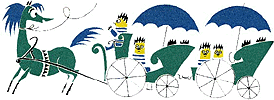The shop may be closed, but we are still trading from our home library. Below is a lovely article by Dan Carrier of the Camden New Journal.
The groaning shelves are packed with classics, with long-forgotten paperbacks, with beautifully bound picture books and with cheaply printed, mass-produced pulp fiction.
Ripping Yarns, Highgate’s secondhand bookshop that is at least eight decades old, is a haven for any self-respecting bibliophile. It is a place you can browse for hours and dig up literary gems.
But the bookshop in Archway Road, run by Dartmouth Park-based actor Celia Mitchell, is closing its doors for the last time at the end of September. A combination of soaring rent and changes in how we buy books has forced her to call time on a shop whose interior and stock have provided a happy hunting ground for anyone who loves the printed word.
Celia took on the shop in the 1970s. She wanted something to do while she was between roles and with her late husband, the celebrated poet and playwright Adrian Mitchell, decided a bookshop would be a nice way to earn extra cash. With a huge range of stock, and a slant on children’s books, poetry, politics and the theatre, the shop is reflection of a lifetime of shared passions.
“Customers who have been shopping here for years tell me it was run by a Mr Sayer in the 1930s,” she recalls. “Apparently he was married to a famous female novelist who lived in Highgate, but we haven’t found out who it was. It was called the Southwood Book Shop and I would pop in and have a browse. It was very rundown but packed with interesting things.” While resting, Celia had been working at an antique shop next door. “The man I worked for was always doing house clearances. He was always getting stacks of books, so the idea began to form,” she says. “Little old ladies would leave suitcases of the books on the doorstep and I loved looking through and seeing what I could find. “Sometimes there would be real treasures.”
Eventually the bookshop owner was ready to give up the lease and Celia wondered if she could make it her own. “I was talking to a friend of mine who ran a bookshop up north and he told me I should go for it – he said that if I didn’t, he would, so I thought that was a sign it wasn’t a bad idea.”
The joy of Ripping Yarns isn’t just the words within the books, nor the many hours that could be lost scanning titles. The books themselves look marvellous. It is packed with old tomes that are now incredibly collectable. If you were looking for a particularly unique and affordable gift, then Ripping Yarns is the place to go.
The care publishers took over their books decades ago means many – although being sold at knock-down prices – are works of art. Pick up a mass-produced Boys’ Own-style annual from the 1930s and the quality of the binding, the feel of the paper and the typefaces and illustrations make them beautiful additions to any bookshelf.
As well as hundreds of inexpensive titles, the early 20th-century adventure annuals and stacks of paperbacks, Celia has collectible items at affordable prices: she has a stock of International Times, the counter-culture magazine, editions of the Rolling Stone and all sorts of other literary ephemera.
Finding stock has always been a thrill for Celia. “I’d come across these beautiful children’s books,” she says. “You’d open them up and inside would be these wonderful illustrations by the likes of Arthur Rackham. “They have an intrinsic value as an object, rather than only the words they contain.” Celia has decided to close Ripping Yarns due to a back-dated rent increase that has doubled the amount she would pay. Instead, the shop will now trade online.
Of course, the book trade has changed since we took it on,” she adds. “In the early days, I would put out stacks of Mills & Boon romances and in the holiday period people would come in and buy 10 of them to take away. Now they’ll download them to a Kindle instead. “It is also very hard to sell reference books nowadays. They are gorgeous titles but people just do not use them any more – they just go online instead. Unless you enjoy the satisfaction of scouring the pages, they are simply not looked at.” It has, for many years, been a passion rather than a way to earn a living, admits Celia. “For a long time, I’d been subsidising it, really,” she says. “It never made any money but I have loved it. I have had so many nice customers and really enjoyed it all. I’ll miss the people coming in browsing. It became a bit of a social club. People love picking through copies, asking questions and meeting their friends here. I will also miss discovering books I did not know about.”
Her customers range from Highgate regulars to a person in Japan who places large orders of stock. The shop has also become something of a tourist attraction, with people popping in when they visit Highgate Village and Highgate Cemetery. Celia says her many friends in the arts world, actors and writers, have said they would help keep it going by offering signed copies of their works to sell but she believes with higher rents, it has become too much. The decision to switch to solely selling online marks the end of a vibrant chapter in north London’s book trade.
Discover more
- Non Gamstop Casinos
- Casino Not On Gamstop
- UK Online Casinos Not On Gamstop
- Betting Apps UK
- Best Non Gamstop Casinos
- Casinos Not On Gamstop
- UK Casino Not On Gamstop
- Casinos Not On Gamstop
- Casinos Not On Gamstop
- Non Gamstop Casinos
- Non Gamstop Casinos
- Casinos Not Signed Up To Gamstop
- Non Gamstop Casinos UK
- Casinos Not On Gamstop
- Slots Not On Gamstop
- Non Gamstop Casino
- Non Gamstop Casinos
- UK Casinos Not On Gamstop
- Gambling Sites Not On Gamstop
- Best Betting Sites In UK
- Gambling Sites Not On Gamstop
- UK Casinos Not On Gamstop
- Slots Not On Gamstop





